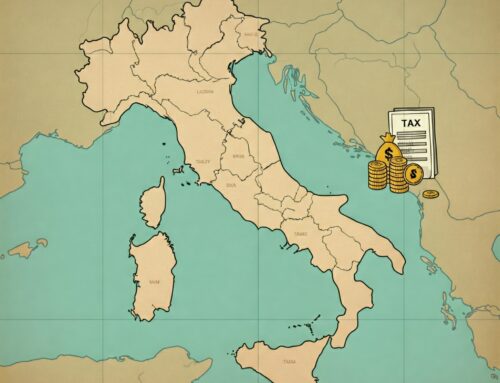This article has been written after the the substantial change in VAT regulation of July 2021.
Is your business based outside the European Union and you’re looking to sell in the European market? Great! But before you start, there’s a crucial step you need to take: registering for VAT in the EU.
Don’t worry, this guide will explain everything you need to know in a simple way.
1. Do I Need to Register for VAT?
📌 If your business stores goods in the EU, then YES, you need to register for VAT in the country where you store your goods.
📌 If your business is based outside the EU and sells physical goods to end consumers (B2C) in the EU:
-
Shipments worth over €150: You need to register for VAT in the destination country of the goods.
-
Shipments worth under €150: You can use the Import One Stop Shop (IOSS) scheme, but it’s not mandatory. If you don’t use IOSS, you need to register for VAT in each country where you sell.
📌 If your business is based outside the EU and sells digital services to end consumers (B2C) in the EU, without human intervention:
-
You can use the Non-Union OSS scheme.
-
You need to register for OSS in one EU country and declare VAT for all EU countries from there.
2. How Do I Register for VAT?
✅ If you need a VAT number in a specific country:
-
Gather the necessary documentation:
-
Company incorporation or registration certificate (issued within the last 6 months).
-
VAT certificate from your country (if applicable).
-
Proof of tax ID that the company is registered for year-end tax.
-
Company Articles of Association.
-
Company bank statement.
-
Director’s ID or Passport.
-
Proof of ownership, lease or rental of the premises being used for the business.
-
Other documentation that may be required by the tax authority.
-
-
Translate the documents into the language of the country where you’re registering (if necessary). In some countries, like Spain, sworn translations and apostilles are required.
-
Submit the application to the relevant tax authority.
-
Wait for the VAT number to be assigned. The process usually takes around 8-12 weeks, depending on the country.
3. Do I Need a Fiscal Representative?
❗ Important: Some countries, such as France, Italy, Spain, and Poland, require non-EU companies to appoint a fiscal representative. This can add additional costs to your operation.
4. What if I Sell Through Amazon FBA or Other Marketplaces?
✅ If you use Amazon FBA and store your products in their logistics centers, you need to register for VAT in the countries where your products are stored.
✅ If you sell through a marketplace like Amazon, they may act as a “deemed supplier” and take care of collecting and declaring VAT for you. Check with the platform to confirm.
5. What if I Sell From My Own Website?
✅ If you sell B2C from your website and the value of the shipments is below €150, you can use the IOSS scheme to simplify the process.
✅ If the value of the shipments is above €150, you need to register for VAT in each country where you sell, unless you are using the OSS scheme.
Need Help?
➡️ At hellotax, we offer a comprehensive VAT management service so you don’t have to worry about a thing. Contact us for more information.
Note: This article is a general guide and should not be considered tax advice. We recommend consulting with a specialist for your specific case.





